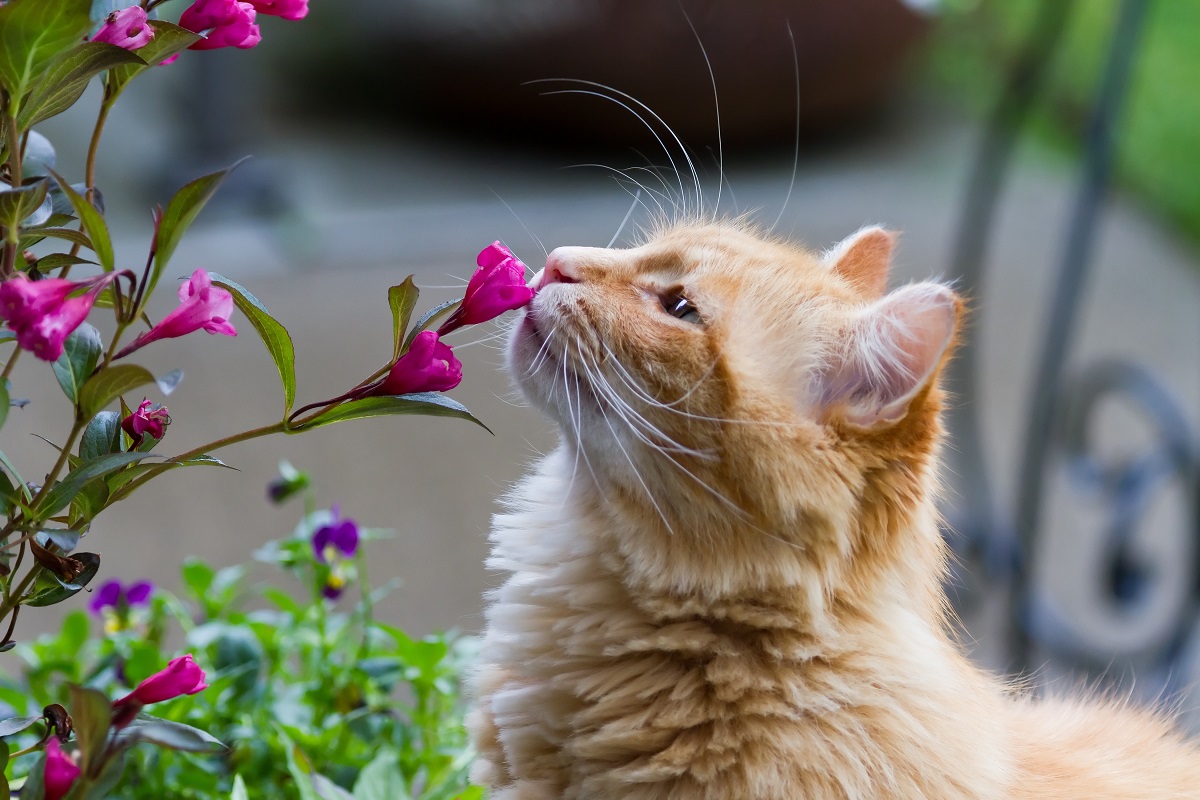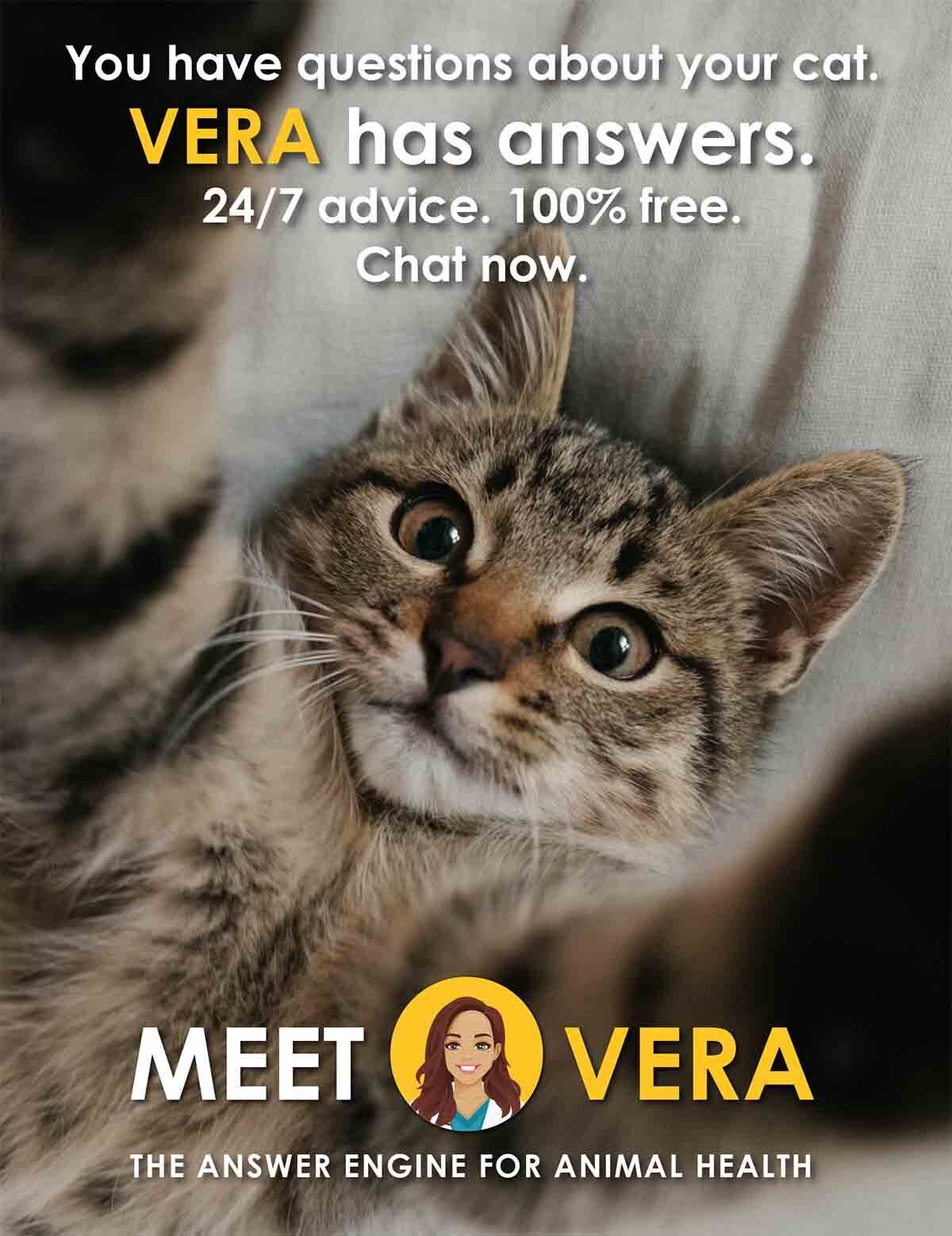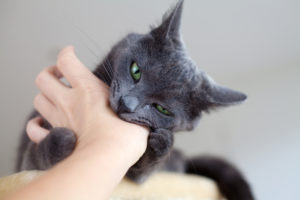Written by: Allison Ward
After discussing your cat’s vaccination recommendations with your veterinarian, you may be wondering, “what about vaccine reactions? What are the potential side effects that can be seen with vaccination?” Vaccine reactions in dogs, cats, and other pets can sound scary to any pet owner. Fortunately, true allergic reactions to a vaccine are very rare in cats. There are, however, some common side effects from cat vaccination, and certain cat-specific vaccine considerations to discuss with your veterinarian.
AskVet Tip: If your cat has collapsed, is having difficulty breathing, or has facial swelling, seek emergency veterinary care IMMEDIATELY—these patients need life-saving treatment as soon as possible!
Normal and Expected Side Effects from Vaccines
A cat vaccine reaction can sound scary but is normal for the most part. As you might expect, some mild soreness at the site of vaccination is common—after all, a needle injected the vaccine under the skin! Most cats don’t display any signs of significant discomfort after receiving vaccines. A special few, however, will have obvious soreness. This can be detected by cat parents as vocalizing when the area is lightly touched or when the kitty is picked up, excessive grooming over the site of the vaccine (to help soothe the “ouchie”), and, in rare cases, limping or favoring the leg where a vaccine was administered. For cats who are a bit extra-sensitive to vaccine injections, your veterinarian can prescribe some pain medication to help relieve their symptoms.
It’s also common for cats to be tired and a bit more lethargic for the first 24-48 hours after vaccination. This lethargy may or may not be accompanied by a fever—which, again, is to be expected! Fever and lethargy occur because your kitty’s body is busy formulating an immune response to the vaccine components, which prepares their immune system to battle the actual pathogen in the future. Sometimes cats may eat less in the 24 to 48 hours following a vaccination, too.
Keep in mind that being tired or having an “off” appetite may be partly due to exhaustion from the unexpected adventure of a car trip and vet visit. Usually, lethargy is nothing to worry about—as long as your kitty is eating and comfortable, this stage should pass within 48 hours. If it does not, contact your veterinarian or chat with one of our AskVet doctors to determine if your kitty should be seen by a vet in person.
If your cat received an intranasal vaccine (drops given directly into your cat’s nose), then you may see some sneezing over the next few days. This is not a concern unless you notice milky discharge from your cat’s nostrils (white, green, or yellow) or any pink-tinged fluid.
Allergic Reactions
Mild allergic reactions are possible in cats, though these occur even more rarely than in dogs. Most allergic reactions are noticed within a few hours of receiving a vaccination, but cats are at risk of developing these symptoms up to 48 hours after injection.
Signs of a concerning (but not immediately life-threatening) allergic reaction in cats can include vomiting, swelling/puffiness of the face (especially around the eyes and lips), and hives (red, itchy bumps on the body). If any of these symptoms are seen, contact your veterinarian (if they are open) or a local emergency hospital right away. These patients need medical treatment before their reaction potentially gets worse and becomes dangerous for your kitty’s overall health.
Anaphylaxis
Any time an animal comes in contact with a foreign substance, there is a very low—but never zero!—chance for a severe allergic reaction called anaphylaxis. In cats, this can be seen as sudden weakness and collapse, severe vomiting, or sudden difficulty breathing. Anaphylactic reactions occur within minutes of receiving a vaccine—and fortunately, they are EXTREMELY RARE in cats. If this happens to your cat, chances are you’ll still be at the vet’s office, where lifesaving care can be provided immediately for any severe reaction.
What About Lumps where a Vaccine was Given?
Some cat owners notice small bumps where a vaccine was given in the weeks after vaccination. Most of the time, these bumps are nothing to worry about—they merely indicate the body’s immune system is responding to the vaccine as it is supposed to. A small bump at the site of a vaccine that shows up within a few days is usually not a concern. Most of the time, these will go away on their own within a few weeks.
However, there ARE some bumps occurring after vaccination that can be concerning. Any bump that shows up where a vaccine was previously given (even if it has been over a year!) should be evaluated right away by a veterinarian. The reason? About 1 in 10,000 cat vaccines administered will result in a type of cancerous tumor called a Feline Injection Site Sarcoma (FISS). Although this is exceedingly rare, it can be an aggressive type of cancer if it affects your cat. For this reason, most cat vaccines are now given on the cat’s legs (instead of between the shoulders, or “scruff”) to make it easier to detect and treat a lump when it is small.
However, there is good news: recent advances in vaccine technology have ALMOST COMPLETELY ELIMINATED the risk of developing these tumors altogether! Research has shown that vaccines without adjuvants (additional ingredients that provoke more of an immune response to the vaccine) are significantly safer than the older, adjuvanted vaccines. In fact, “adjuvant-free” vaccines have NEVER been linked to a case of FISS! The adjuvant-free vaccines are more expensive for veterinarians to buy (and thus more expensive for cat parents), but the reduction in risk of developing FISS is worth it—ask your veterinarian if they offer adjuvant-free (or “non-adjuvanted”) vaccines.
What About Vaccines My Cat Needs in the Future?
If your cat has EVER experienced an allergic reaction to a vaccine, make sure to let your veterinarian know! True allergic reaction symptoms include vomiting, difficulty breathing, swelling of the face, hives, and collapse. This information should be part of your pet’s permanent medical record.
Depending on your cat’s symptoms during the reaction and what vaccine(s) seemed to be linked to the event, your veterinarian may recommend:
–“Pre-treating” your cat with a Benadryl injection prior to receiving future vaccines
— Scheduling future vaccination visits as a “drop-off” vaccine appointment so that your kitty can be monitored in the hours after receiving a vaccine
–Avoiding certain vaccinations altogether
The Bottom Line
After receiving a vaccine, some side effects are to be expected—like mild muscle soreness and lethargy (or being more tired than normal). Fortunately, true allergic reactions to vaccines are very rare in cats. For almost all individual cats, the benefits of cat vaccinations to prevent common diseases far outweigh the risks of a vaccine reaction. Keeping an eye out for symptoms of an adverse reaction is very important as well.
If you have questions regarding your cat’s vaccination schedule, expected side effects from vaccination, or are concerned about vaccine reactions, reach out to your AskVet veterinarians any time. If you’re also wondering, “what vaccines do cats need?”, we’re here 24/7 to help you answer that question and any other questions about your cat’s healthcare!
Written by:
Allison Ward, DVM
Dr. Allison Ward grew up in the suburbs of Washington, D.C. and started working in veterinary hospitals when she was 14 years old. After graduating from veterinary school in 2011, she completed a small animal rotating internship in New Jersey, followed by a neurology/neurosurgery internship in Miami. After completing this advanced training, Dr. Ward then moved on to general small animal practice. Dr. Ward’s professional interests include feline medicine, neurology, and pain management. Her passion for educating pet owners carries over into her work with AskVet, and she loves being able to help pets and their parents at all times of the day (and night!). She currently resides in sunny south Florida with her two cats, Larry and George.








